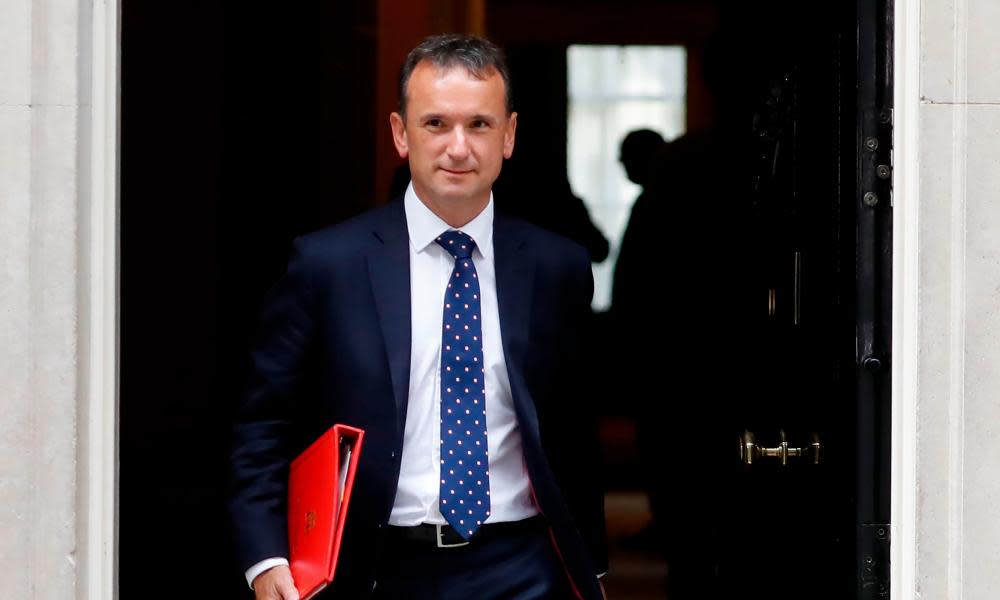Women with a #MeToo complaint are being silenced for the sake of politics

Life moves fast in this general election. There seems barely time to digest one scandal before the next is upon us; disgraced candidate follows shady accusation without a break. But just occasionally, it’s worth rewinding for a moment and focusing on the human stories that are trampled in the rush.
Women in politics understand the electoral imperative to move on quickly, but wonder why there never seems to be a right time to stop and examine these issues in detail
Last weekend the newly installed chief executive of the People’s Vote campaign, Patrick Heneghan, stepped aside pending an investigation into allegations (which he denies) that he had asked a young female staffer to come home with him and had made inappropriate comments about women’s bodies. He stepped back only after these allegations were leaked to newspapers; it seems young women standing up in an embarrassingly public staff meeting and saying they didn’t feel comfortable working for the man who overnight had become their direct boss was not enough. So far, so depressingly familiar a story.
Heneghan has described the allegations as “politically motivated”. The way they have been dismissed in some quarters as just another twist in the tale of infighting among remainers, rather than as a grimly distressing experience for all concerned, is particularly galling. (Heneghan was installed in a much criticised boardroom coup by the City PR and donor Roland Rudd, ousting two of the campaign’s former directors, veteran political spinners Tom Baldwin and James McGrory. But it’s understood that female staff had been privately talking between themselves about Heneghan, who previously led one of the organisations under the People’s Vote umbrella, for days before he unexpectedly became their direct boss). Staff who walked out en masse over the personnel changes are under heavy pressure now to resume work, given a second referendum could be imminent if the Tories lose the general election; they’re only too aware that now is the time to be fundraising, and doing whatever they can to get pro-referendum candidates into Westminster.
Yet for the young women involved, it’s not so easy just to forget it and move on for the sake of the cause. The same must surely be even more true for the rape victim demanding that former Tory cabinet minister Alun Cairns should drop out of the election, after he was found to have endorsed the political aspirations of a man responsible for collapsing the first trial of her rapist. The judge accused Ross England, a former aide to the minister, of deliberately sabotaging the trial after England made claims about the woman’s sexual history from the witness box. England, who was selected months later as a Tory candidate in the 2021 Welsh assembly elections, says he was just answering a question.
Cairns resigned his post as secretary of state for Wales last week, after emails emerged casting doubt on his insistence that he hadn’t known about the rape trial when publicly endorsing England. But Cairns is still standing as an MP this time round. The unnamed victim, a former Conservative party worker herself, who had to go through a second trial before her attacker was finally convicted, told the Times that the impression female voters will get is that sexual assault isn’t a priority “so long as target seats in Wales are won”. Is she simply supposed to shut up about it all now, just to help the party hang on to Cairns’s marginal Vale of Glamorgan seat?
Related: Boris Johnson urged to ditch Alun Cairns as an election candidate
It’s hard for women in any organisation to complain about incidents that are both personally mortifying and potentially career-ending. But it’s doubly hard for women in politics, who are either made to feel guilty for imperilling a cause they believe in, or are treated like pawns in some greater power game played over their heads. They understand the electoral imperative to move on quickly but wonder why there never seems to be a right time to stop and examine these issues in detail; why several male MPs accused of bullying or harassment over the past two years have retired at this election without their cases ever being resolved, leaving question marks hanging uncomfortably over all sides.
So when people ask whether #MeToo might have gone too far, or whether it’s men who are now professionally vulnerable, the obvious answer is that it hasn’t and it isn’t. Not so long as women are still expected to accept that there are bigger things at stake than them feeling safe and comfortable at work, or that what happens to them matters but it still doesn’t matter quite so much as winning.
• Gaby Hinsliff is a Guardian columnist

 Yahoo News
Yahoo News 
